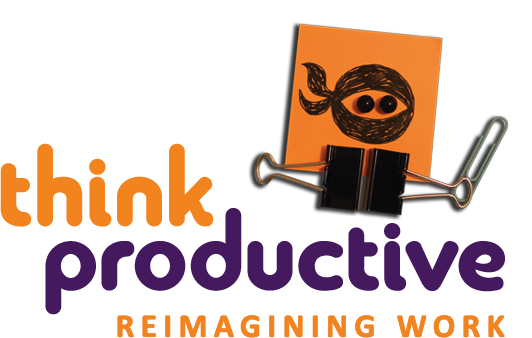My Journey to Meditation
Today, we’re handing over the blog to Liam McClintock, who shares his journey to meditation. He explains how meditation can help us all become Productivity Ninjas in this busy world of information overload.

My life seemed to be on track for success by traditional measures.
Recently graduated from Yale and working at a growth stage venture capital firm in Boston, I’d done what they told me to do. “They” being the authority figures in my life. I’d studied hard and gotten good grades to enter a path set up for financial reward.
But then I started to look around and realize that the people I admired and worked for weren’t all that happy. In fact, decades later they were still running on a treadmill trying to check more boxes.
And the job that had seemed like a pot of gold at the end of the rainbow in college wasn’t all it was built up to be. I didn’t quite fathom how quickly my life would become an exercise in meetings, emails and phone calls. The time in between consisted of Chipotle at my desk, commuting on a train, and occasionally meeting a friend to anesthetize ourselves with a couple of adult beverages.
“Is this what life is all about?” I wondered.
Enter Meditation
I had begun meditating three years earlier after hearing from famous entrepreneur Tim Ferriss. He said that 80% of the most successful people in the world that he interviewed had a regular meditation practice. I admittedly started meditating because I thought it would help me make more money. In the competitive world of finance the slightest edge can make all the difference.
Soon, meditation became my lifeline. I became hooked on the neurochemicals and calming effects of the practice and began attending retreats on the weekends. The well-known centers around Boston, namely Kripalu and the Insight Meditation Center, became places of refuge in a world of distraction and scheduling. There I glimpsed an internal joy that didn’t rely on external circumstances.
The real challenge, as I found out, was to take these states of mind and carry them back into my hectic day. Upon getting up from my meditation seat, I’d set a firm resolve to remain mindful for the rest of the day, only to inevitably slip back into a mind-wandering state. But I recognized that this was part of the learning process, part of the arduous mental “reprogramming” that I was undertaking.
Slowly, I sensed that something profound began to shift within my mind. As I continued to meditate, I became acutely aware of many of my (previously unconscious) thoughts and habits. I began to realize the parts of my day that were causing stress and anxiety, such as the amount of time spent buried in my email inbox.
Off to Bali

I recognized these benefits I got from meditating, and read about the recent neuroscience research demonstrating meditation’s ability to change the brain. I became convinced that exploring methods of training the mind was the best use of my time and energy.
So I quit my job and traveled to Bali, Indonesia to complete a 300-hour meditation teacher training course. I then spent time in the mountains meditating with monks. I wanted to practice meditation in its most extreme form to test a hypothesis. That you really could train the mind like a muscle for increased happiness.
The test results came back as a resounding “yes.” I’d never felt mentally sharper, more joyful or energetic than after those days of training. It was like suddenly dropping 20 pounds of mental baggage. The ability to direct my attention however I liked and harness the full power of my mind created a whole new way of experiencing the world.
My Vision: Mental Fitness as the Next Major Health Revolution
And so over a year later, here I am running a company called FitMind. I am sharing what I’ve learned (and continue to refine) with Fortune 500 companies, addiction centers, schools and government organizations to teach meditation. We also recently launched a meditation app to reach a wider audience with this program.
My mission in life is to bring meditation to a wider audience under a scientific lens. I think that mental fitness, a world in which we care for and train our minds, is the next revolution in health that will also radically transform our society. Our minds are primary; they are always with us and can be molded using self-directed neuroplasticity, more commonly known as meditation.
What I realized (and I get emotional just typing this out) is that meditation is the perfect antidote to modern living. It helps address so many of the root problems we deal with on a day-to-day basis: addiction, narcissism, social isolation, attention deficit, anxiety and virtually every other corruption of the mind.
Meditation is the tool that’s available to all of us for systematically building a better mind. It takes consistent effort, but I can’t imagine a more worthwhile endeavour.
Written by Liam McClintock, Founder of FitMind Co.
